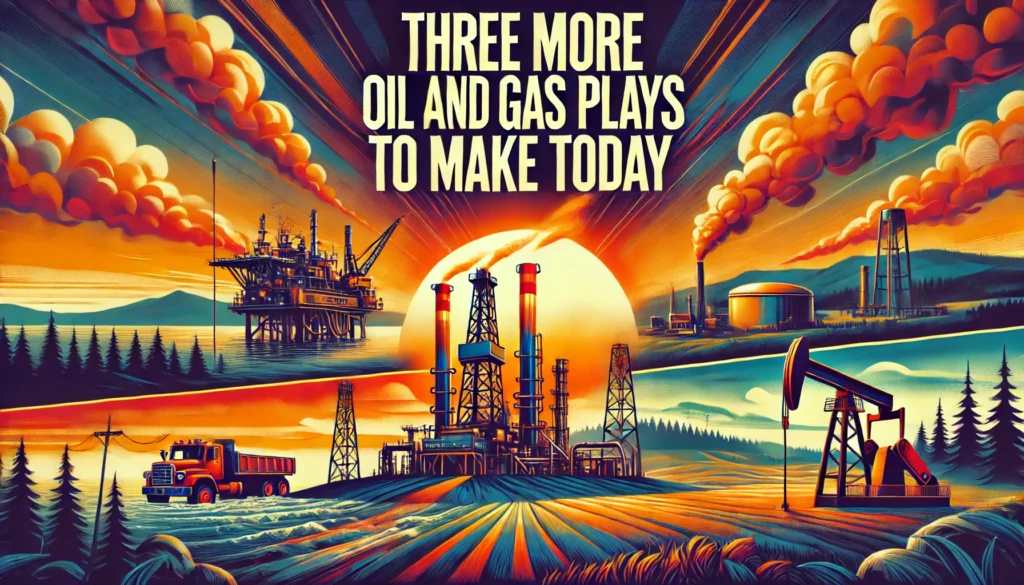- The Fed has overridden the free market…
- Lessons from the “forgotten depression”…
- Trump’s Treasury Secretary recently let huge news slip…
Dear Reader,
Ms. Nicole Gelinas is a senior fellow — ironically — at the Manhattan Institute.
From whom:
- Much of the reason Trump became president in 2016 — and won again in 2024… was, and remains, a sense that something is wrong with the post-World War II economic system, which has persisted well past what a free market would permit…
There this Gelinas madam lowers her axe upon the root — “well past what a free market would permit.”
Many among us like to yell about the glories of free market capitalism.
They believe it is the economic system under which we flourish.
Yet they worship a corpse.
That is because the free market — the authentically free market — long ago went beneath the sod.
In its place rose the manipulated capitalism of government and central bank interventionism under which we presently wallow.
Consume, Consume, Consume!
Please continue, Ms. Gelinas:
- For eight decades, the American citizen’s primary economic role has been to consume… To keep consuming, Americans had to borrow…
- The only way Americans could shoulder such a debt burden was for the Federal Reserve to bring interest rates ever lower. Those low interest rates were in turn enabled by billions of non-American, low-wage workers entering the global economy, keeping American prices and inflation low.
The emerging arrangement yielded deep structural economic… imbalances.
And when natural market dynamics attempted to balance the imbalances?
The Federal Reserve got its doofus thumbs heavier upon the scales — and swung the system ever deeper into imbalance:
- Markets have tried to help us correct our economic imbalances, most obviously during the 2008 financial crisis — a free-market revolt against unsustainable private-sector debt levels. But at every turn, elected officials and the Federal Reserve have been terrified to tighten the credit valve that kept money flowing…
- More than four decades of government-directed economic policy have encouraged reckless household borrowing… by indirectly subsidizing it with implicit guarantees against investor loss.
The Consequences of Profligacy
Thus the United States groans beneath a $36.7 trillion national debt.
Thus its economy gutters along at a debt-to-GDP ratio of some 125% — a record.
Are you aware that 67% of all dollars to ever exist were conjured within the past 18 years?
It is true. And each was borrowed into existence.
What if the Federal Reserve had stood paws off, for example, following the great rattles of 2008?
Interest rates would have gone leaping. Marginal businesses dependent on artificially low interest rates and cheap credit would have gone to the bottom.
Yet the inevitable string of bankruptcies would have taught a severe but necessary lesson.
That assuming excessive debt is reckless, for example.
And that maintaining an umbrella at hand is sound policy.
Why Buy an Umbrella When the Fed Will Give Me One?
The purchase of an umbrella against the inevitable squall represents responsibility.
The sky overhead may be bright and cloudless today. Yet a responsible business — or household — always keeps a weather eye upon the horizon.
It knows it must ready for eventual rain.
A bailout informs them they do not require the umbrella.
It informs them the Federal Reserve will simply hand them one when the water starts down.
Thus the bailout powerfully discourages thrift, prudence… and forbearance.
And so the evil cycle perpetrates.
Had the Federal Reserve refused to hold out the umbrella… the United States economy would have likely risen once again upon a granite foundation of savings and worthy investment.
The economic agonies may have been acute, it is true. Yet they would have likely proven brief.
Here I refer you to the “forgotten depression” of 1921.
The Forgotten Depression of 1921
United States industrial production plunged 31% between 1920 and 1921. Stock prices plummeted 46%… and corporate profits a crushing 92%.
Unemployment ran as high as 19%. Storefronts nationwide gaped empty.
Yet the economic doctors of the day let the ailing patient be.
In the America of 1921 the stock market looked after itself… and buried its own dead.
Business was on its own hook. And banishing the business cycle was not the work of government — or its central bank.
As said one economic historian:
- Despite the severity of the contraction, the Fed did not move to use its powers to turn the money supply around and fight the contraction.
Yet recovery was underway by the summer of 1921.
Unemployment was down to 6.7% by the following year… and a vanishing 2.4% the year after.
Industry was on the jump again.
The United States economy of 2008 was denied the opportunity to heal and recover of its own.
The Courage to NOT Act
Ms. Gelinas, in conclusion:
- How different today’s economy might have been if Biden, Obama, Bush or Clinton had treated the American voter as a sophisticated citizen rather than a mindless consumer? What if they had told voters that to avoid a crisis and build a sturdier economy, we needed to ease back from borrowing for consumption?…
- They all became so afraid of market reactions that they forgot the purpose of markets in the first place: to reveal economic realities, good and bad, so that a democracy can adjust as necessary — not to intimidate the government into bailout after bailout.
Yet bailout after bailout has been the medicine on offer.
In 2015, Mr. Bernanke authored a very self-congratulatory memoir — “The Courage to Act,” by title.
The book bears precisely the incorrect title.
Wall Street and Washington demanded action of him in 2008… and refusing their pleas would have required a spine of Damascus steel.
Inaction would have required far greater courage. Yet the courage of inaction was not in him.
That courage is not in Mr. Powell, either.
Nor, I hazard, will you locate it in his successor — or in his successor’s successor.
Cowardice begets cowardice begets cowardice.
Brian Maher
for Freedom Financial News




